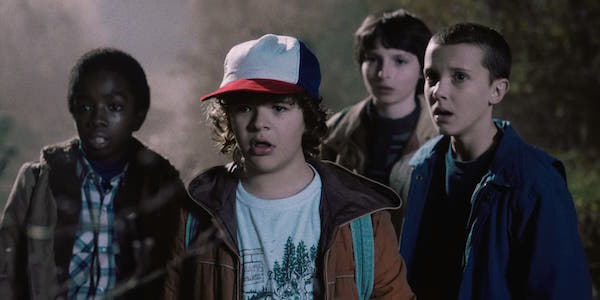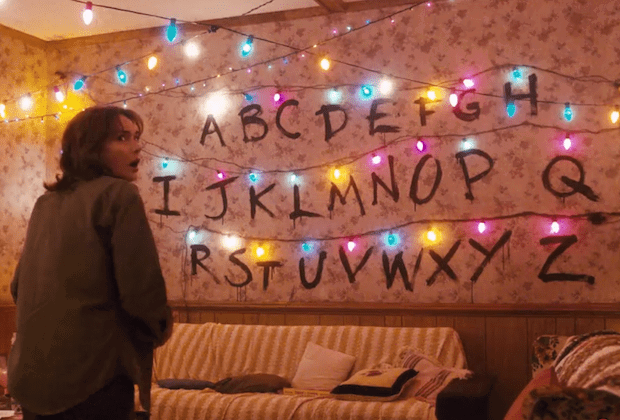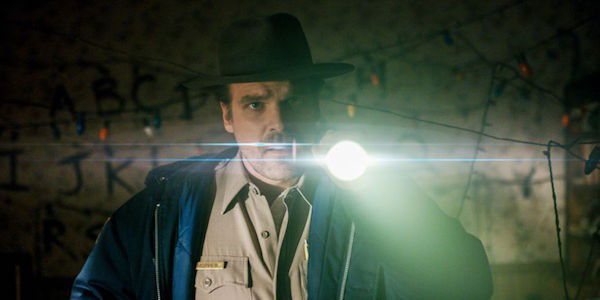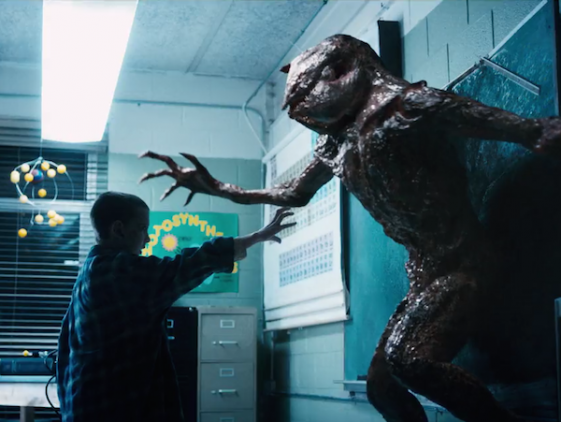When a piece of media becomes a phenomenon, it seems to take the whole social media world by storm. We saw one earlier this year with the breakout hit musical that was Hamilton. Netflix managed to find the next one in a little show called Stranger Things so filled to the brim with nostalgia that will likely do for the early 1980s what The Wonder Years did the early 1970s and The Adventures of Pete and Pete did for the early 1990s — immortalize it in the pop culture collective forever. And now that a second season has been confirmed, it’s time to take a closer look at the eight episodes that had the world on edges of their seats.
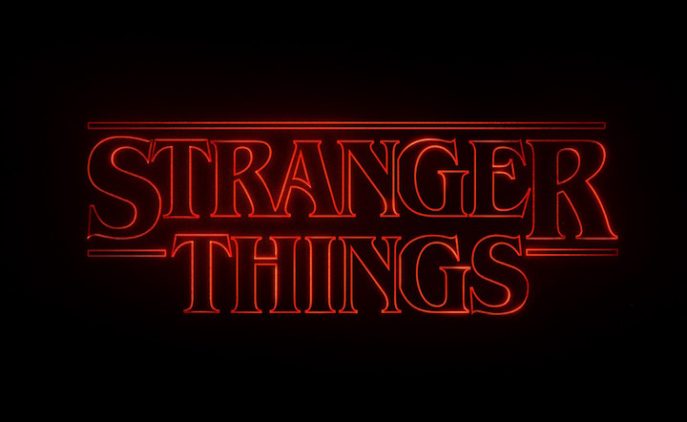
The show has a fairly simple premise — Will Byers goes missing one night after playing D&D with his friends. Just as he disappears, a young girl makes her way into the town of Hawkins, Indiana. Will’s friends Mike, Dustin, and Lucas go on an epic quest to find him and keep the girl, named Eleven, safe from harm. Meanwhile Mike’s sister Nancy and Will’s brother Jonathan go on a hunt for a mysterious creature that’s been taking townsfolk. Finally, Will’s mother Joyce and local sheriff Hopper dig deeper in the secret government lab that made Eleven and seems to be keeping secrets about experiments and gateways. In the end, they all come together to save not only Will but their whole town. The narrative is clear and clever, with some real emotional scenes that make you feel for these characters fast, and while it has sufficient twists and turns to keep it interesting, it never jumps the shark or pulls something out of left field. The dialogue is usually very thoughtful and matches the characters well, which is especially important for kids since they are either written too old or too young.
Someone came up with a theory that the reason Stranger Things works is that it combines the three great genres of the 1980s: the child-centric sci-fi story, the teen monster horror, and the adult government conspiracy thriller. While I’m not entirely convinced this was an intentional choice, it definitely works within all of the tropes they use for the different storylines — the mystical and mysterious friend for the kid narrative, the setting the trap for the invisible but deadly monster for the teen horror, the weirdly unresolved sexual tension and tragic backstories for the government thriller. The heavy use of these 1980s clichés work to benefit of creating a familiar and comfort-food-like story but it’s also to the story’s detriment. You can call most of the “twists” that happen, including the death of the nerdy girl Barb (which to me is still the biggest tragedy of the show) and the sheriff’s tragic backstory that makes him the grizzled and bitter man we see throughout the show.
There has been some backlash about Nancy ending up with her kind-of-jerky boyfriend Steve rather than Jonathan but personally, I am glad they didn’t go the “nice guy should get the girl” route. Steve may be a jerk at times, he’s proven that he cares about Nancy and the fact that Nancy is her own person and not so easily swayed by some acts of kindness and near-death experience. I also supremely despise the trope in which a girl has a change of heart just because a guy is nice to her or acts in an “approved” fashion. Her affection is not a reward he wins for not being an asshole, and assholes are not usually one-dimensional jerks (only in the movies).
Winona Ryder is genius in this show as a single mom already on edge from working all day and feeling inferior who slowly and surely has a total breakdown. I’ve personally missed Ryder’s presence on screen and while nothing is going to beat Beetlejuice or Heathers, this is definitely one of her best performances to date. Millie Bobby Brown is excellent as the emotional stunted and curious Eleven, while Finn Wolfhard as Mike is charming and endearing, the kind of kid who would have made an excellent lead in a Steven Spielberg flick. The majority of the cast is on par, with Shannon Purser’s Barb, Caleb McLaughlin’s Lucas, and Gaten Matarazzo’s Dustin being my personal favorites. There is one exception for me — David Harbour as Chief Hopper. I found the performance to be one-dimensional with glimpses of emotion and depth seeping through every so often, but not enough to break out of the very narrow definition of embittered town official. Honestly, he feels like a Supernatural reject, as though he were even too stereotypical to live in a world of archetypes. Harbour is not a bad actor per se but he was not given much to work with — you can even see it in the flashback, he has good range but the script does him a disservice.
What Stranger Things does better than nearly every 1980s trip show has done in the last twenty years since we kicked leg warmers and neon colors out of our collective closest is the music. If I could live in a world where this soundtrack was playing all the time, I would do so today. In fact, it was so popular and fans demanded it with such ferocity that they actually went ahead and put together a soundtrack that people could buy. On top of that, the aesthetic of the show is excellent — dark shadows, endless trees and leaves, fuzzy flannels and unflattering sweaters, the strange plastic feel that totally encapsulated the decade. It is a show that screams autumn from the top of its lungs, which is weird that they slotted it to come out during the summer. The monster of the show has a gorgeous and terrifying design, the special effects are well-fitted to the whole look of the show and help to really make the danger feel real, and the settings feel expansive and real. All I’m saying is that it’s a good looking, pretty sounding show.
Stranger Things is one of those shows that would not be produced if Netflix hadn’t snatched it up, reminding us that yes, that subscription is well worth it. Let’s all be thankful that such a weird and wonderful show got picked up for season two, and hope this first one wasn’t just a fluke.
Summary
Stranger Things is a work of television genius that has swept the world up in its mastery of narrative, soundtrack, and genre. Season 2 is going to have a lot to live up to when it comes out in 2017, because its first season is a tough act to follow.
-
One of best shows on Netflix to date


